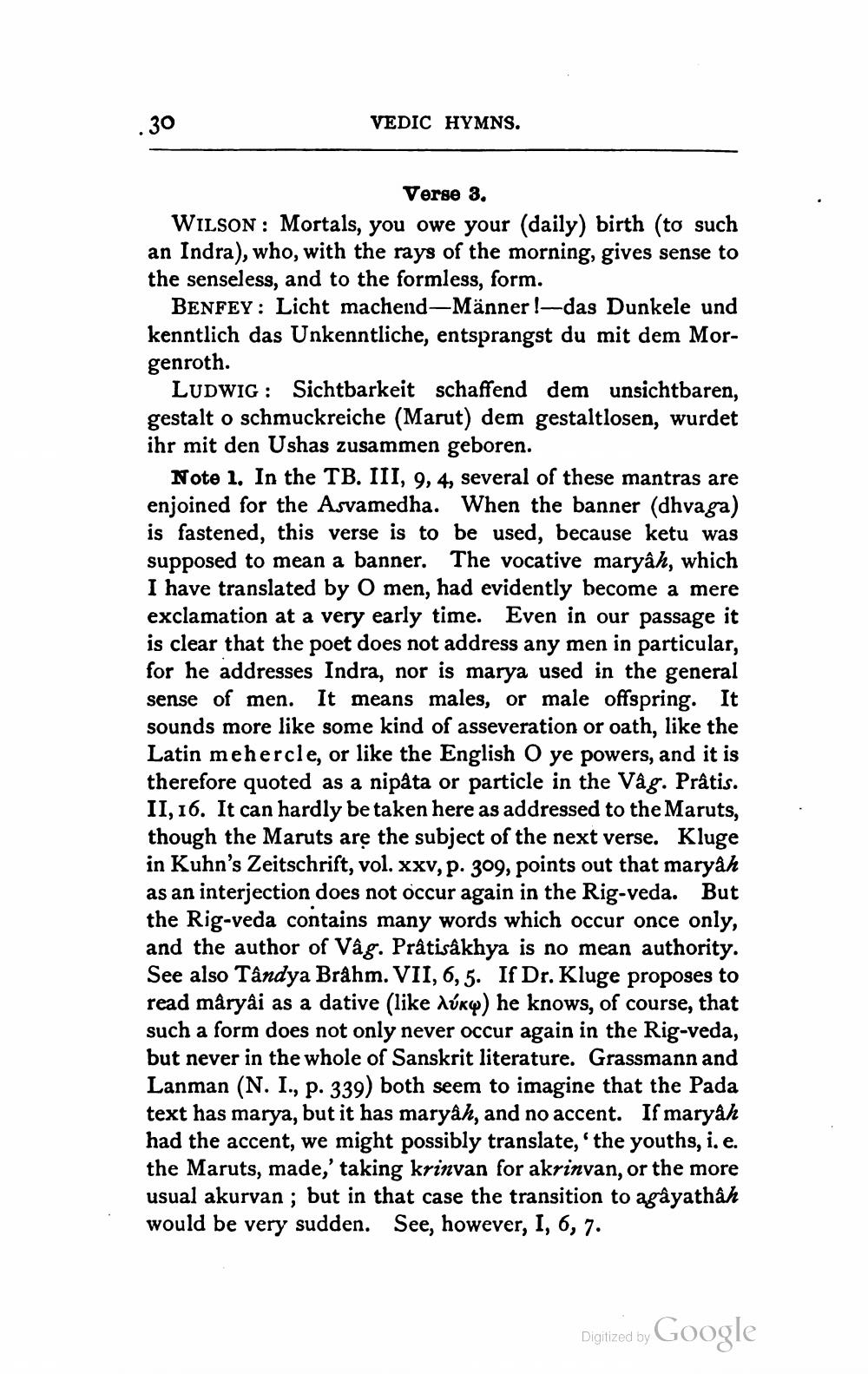________________
.30
VEDIC HYMNS.
Verse 3. WILSON : Mortals, you owe your (daily) birth (to such an Indra), who, with the rays of the morning, gives sense to the senseless, and to the formless, form.
BENFEY: Licht machend-Männer!- das Dunkele und kenntlich das Unkenntliche, entsprangst du mit dem Morgenroth.
LUDWIG : Sichtbarkeit schaffend dem unsichtbaren, gestalt o schmuckreiche (Marut) dem gestaltlosen, wurdet ihr mit den Ushas zusammen geboren.
Note 1. In the TB. III, 9, 4, several of these mantras are enjoined for the Asvamedha. When the banner (dhvaga) is fastened, this verse is to be used, because ketu was supposed to mean a banner. The vocative maryâh, which I have translated by O men, had evidently become a mere exclamation at a very early time. Even in our passage it is clear that the poet does not address any men in particular, for he addresses Indra, nor is marya used in the general sense of men. It means males, or male offspring. It sounds more like some kind of asseveration or oath, like the Latin mehercle, or like the English O ye powers, and it is therefore quoted as a nipata or particle in the Vag. Prâtis. II, 16. It can hardly be taken here as addressed to the Maruts, though the Maruts are the subject of the next verse. Kluge in Kuhn's Zeitschrift, vol. xxv, p. 309, points out that maryah as an interjection does not occur again in the Rig-veda. But the Rig-veda contains many words which occur once only, and the author of Vâg. Prâtisâkhya is no mean authority. See also Tândya Brahm. VII, 6,5. If Dr. Kluge proposes to read måryai as a dative (like aúkq) he knows, of course, that such a form does not only never occur again in the Rig-veda, but never in the whole of Sanskrit literature. Grassmann and Lanman (N. I., p. 339) both seem to imagine that the Pada text has marya, but it has maryâh, and no accent. If maryah had the accent, we might possibly translate, the youths, i.e. the Maruts, made,' taking krinvan for akrinvan, or the more usual akurvan; but in that case the transition to agâyathầh would be very sudden. See, however, I, 6, 7.
Digitized by
Digized by Google




